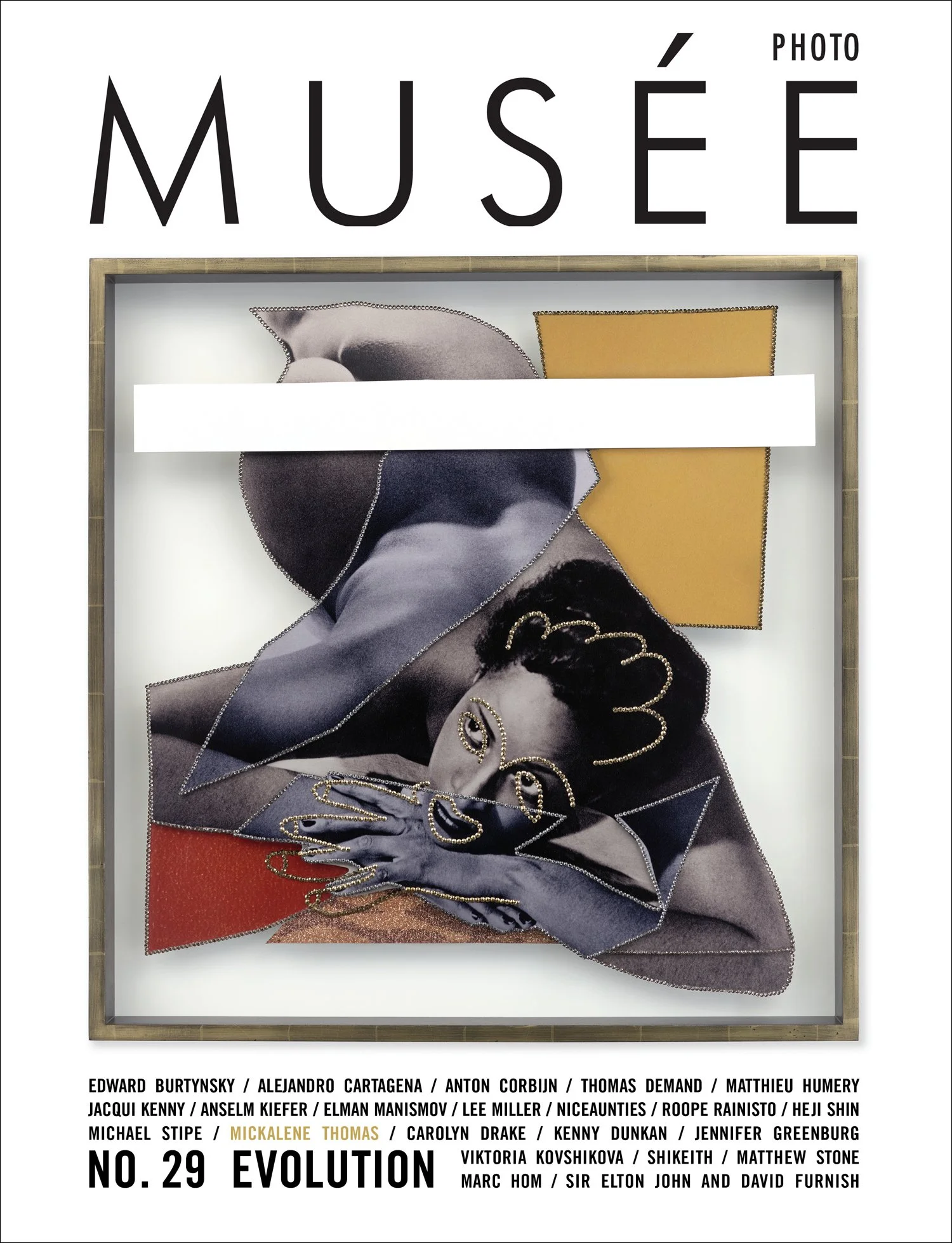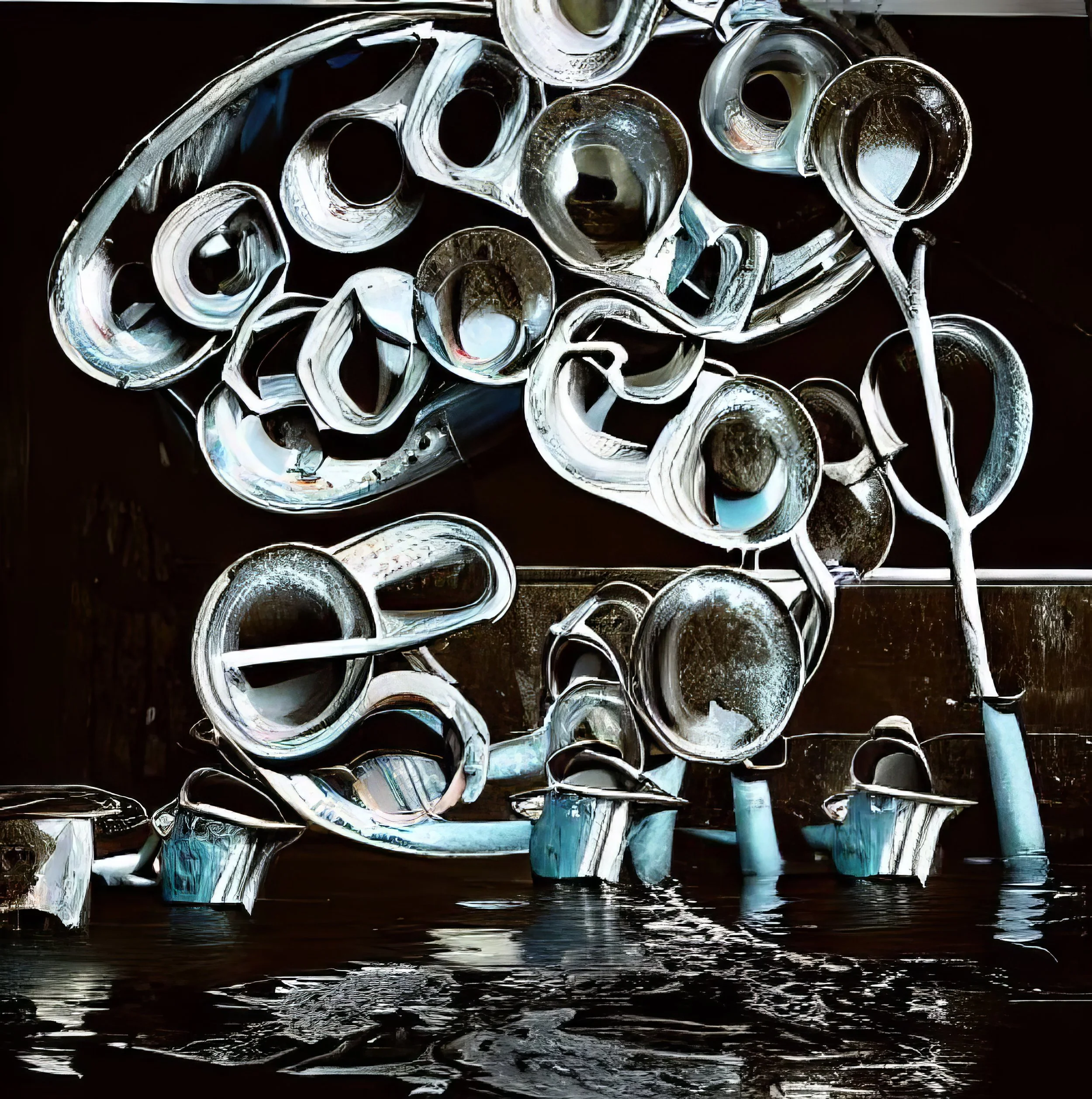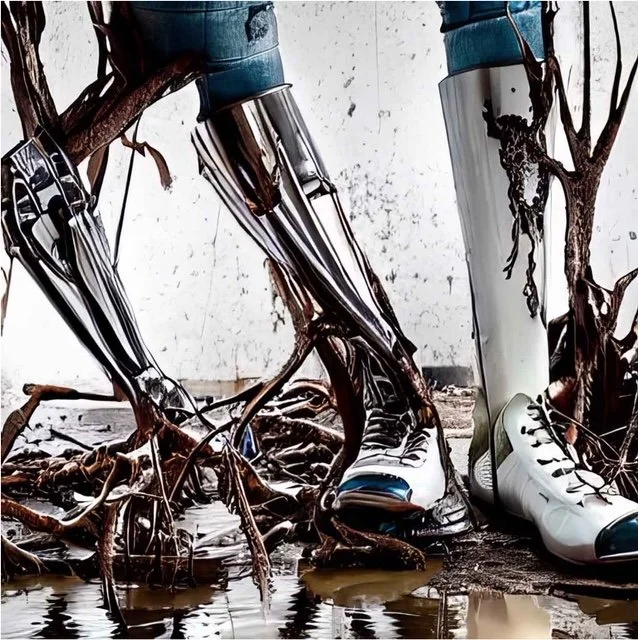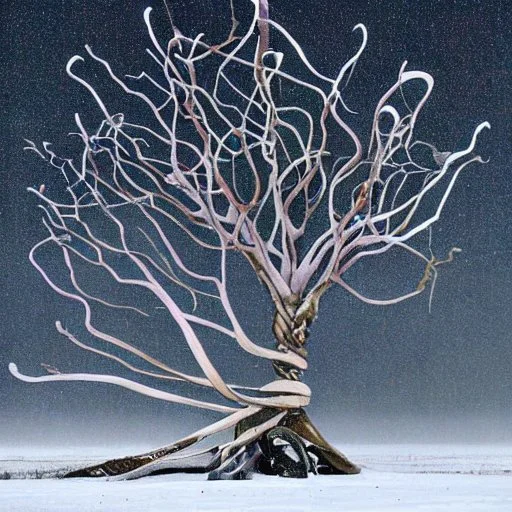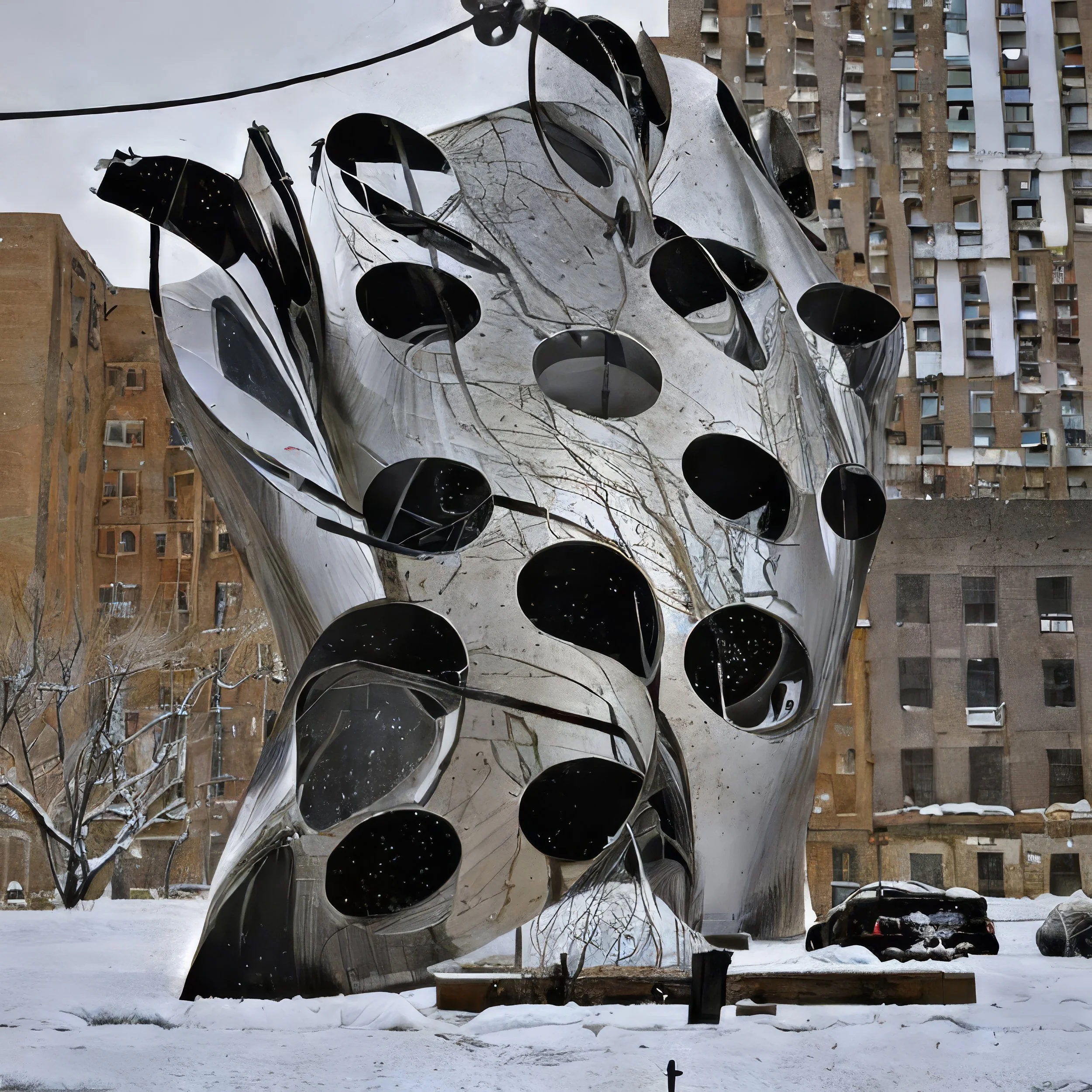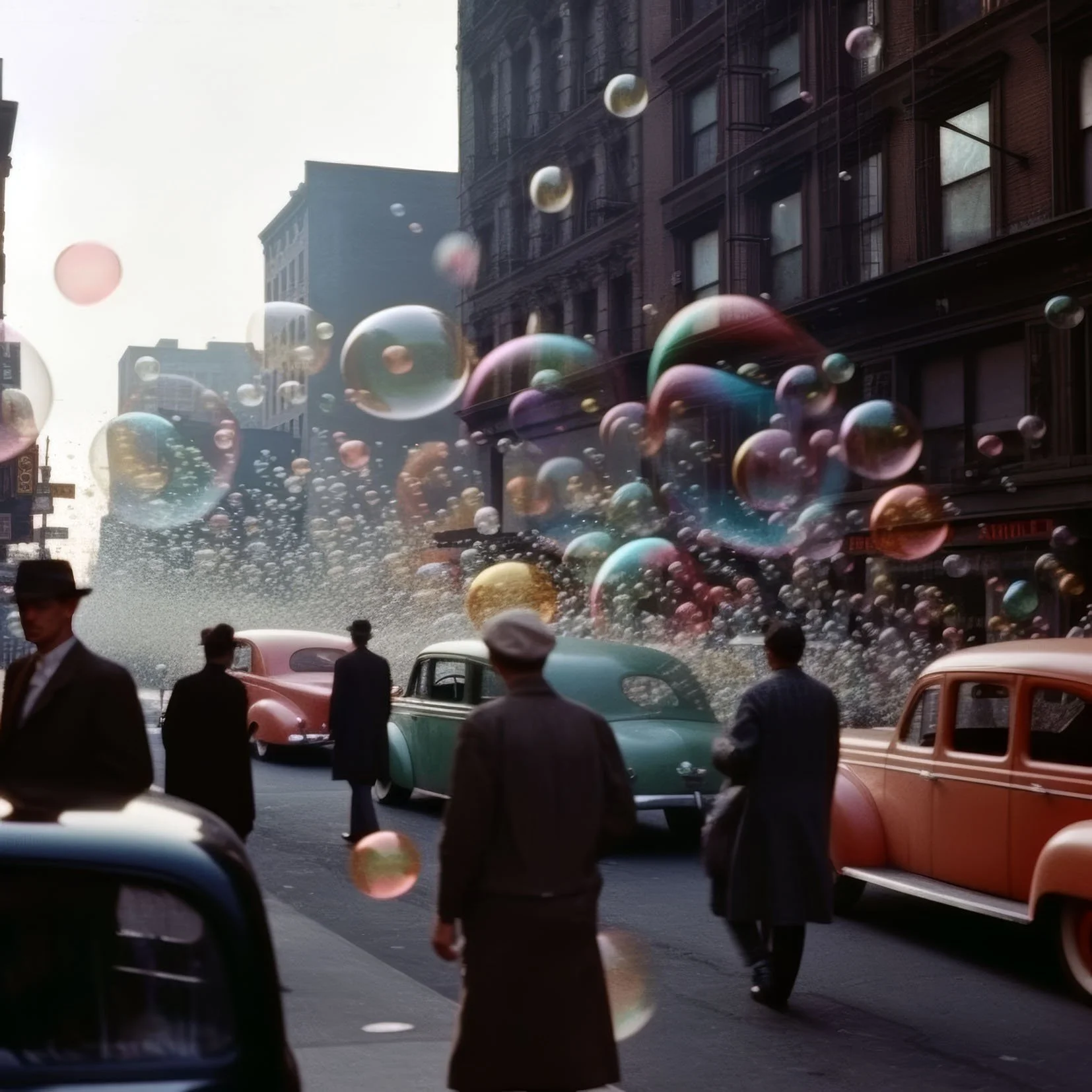David Winter | Explorations with Ai Imagery
David Winter “Untitled”, 2024. AI Generation. Courtesy of the artist.
Written by: Edwin L. Harmon IV
Edwin: “Could you tell me a bit about your formal training as a sculptor and how that informed the other mediums you worked with down the road..?”
David: “Basically the story of my life, the first chapter was as a sculptor. I did big and complicated works, generally managing one a year. But I managed to show them in New York. I was able to show each piece in galleries. At one point in that decade, I even got the Rome prize. I stopped making art as I was trying to find another way to make a living. Then, I was doing construction work which I had to stop. I saw an opportunity to make money selling photos and graphic stuff so I pursued it consistently, and didn’t dive out of it until now. Finally the third chapter, working with ai, is all I am currently focused on.”
Edwin: “Do you have an archive of your past sculptural works?”
David: “I made a book about that chapter of my work. I stopped sculpture, the reasons for stopping were complicated and I couldn’t keep them. When you make large work like that with nothing to do with them, you get rid of them.”
David Winter “Untitled”, 1980. Mixed Media Sculpture. Courtesy of the artist.
David Winter “Untitled”, 1980. Mixed Media Sculpture. Courtesy of the artist.
David: “I had never expected that I would be making art again but someone showed me the AI stuff and I knew that I was hooked again. I never expected that I would be making work like this until I started.”
Edwin: “What is your relationship with AI? How does it appeal to you as an artist?”
David: “Well… it creates amazing, mind-blowing images. How it does it, I’m unsure and it's probably better that I don't know. The kind I do, I put in only words. Like a sentence or group of phrases generally utilizing common objects, there’s no abstractions in the language used. I put those in and gather stuff I’ve never seen before and could never imagine.”
David Winter “Untitled”, 2024. AI Generation. Courtesy of the artist.
Edwin: “Is the image quality and your production speed what draws you, as an artist, to AI?”
David: “Specifically, it’s the quality– well the quickness is slightly embarrassing actually. You’re not supposed to be able to make art that quickly…”
Edwin: “Yeah, that was one of my later questions…”
David: “You know, it could be a problem because the quantity of my output is quite large. This can be seen as an issue in the art world, devaluation because of the quantity. But you know—it's a new medium with its own problems and I don’t have to display each image that I make. I want to emphasize that I don't manipulate an image once I get it. Many individuals use AI to play with or alter their own images. I could do that, but I find that the raw outputs are so complicated and I'm so happy with them as they are that I don't want to try to improve them.”
Edwin: “If you’re taking the generated image and you’re not changing it or including your own photography work, what part of it feels like yours? The selection of words?”
David: “I guess so. That’s my only role. I don’t see anyone else's work that looks anything like mine for one. On that level, there’s something about me doing it that makes something that others wouldn’t get if they tried the same process.”
David Winter “Untitled”, 2024. AI Generation. Courtesy of the artist.
Edwin: “Well, I understand that many Ai artists are incredibly defensive over their prompts.”
David: “Yes and I would be too…”
Edwin: “Of course, so the selected phrases and their specific order is your creative input?”
David: “I suppose, until someone explains it better. I don’t want to tell people my prompts, as I don’t want to influence the way they see the image.”
Edwin: “Do you do any sort of journaling or planning before you begin writing your prompts?”
David: “No, I take rough notes of previous prompts so I don't forget them but I'm not scrupulous about it. I don’t need to go back and see previous prompts because I don’t want to get back to that result anyway. I may play around with combining old prompts with new elements.”
““Another thing I want to say about AI, is that it doesn’t collage elements, but fuses them. I could even put in “a ballistic missile and a Calla lilly” and it would make a dual-entity rather than just collage both images. It’s interesting when it gives you something that serves as both references. Something unforeseen, something individuals yearn for with new art…” ”
Edwin: “Would you say that these works serve as a social commentary on the digital age?”
David: “No, I have zero interest in commenting on anything.”
Edwin: “Oh, I am very interested in that. So, you feel like you’re not really working to say something about anything?”
David: “No, I am working to see something new- and share that with others. I’m not trying to say something, I am trying to make something that blows my mind. And that’s a different thing than commenting deliberately- I am not trying to say anything.”
Edwin: “I think that’s important. Oftentimes, we artists are told that we must say something for our work to be recognized.”
David: “I know right, these days yeah. I’m old enough to have attended school in the ‘70s and the pressure to commentate wasn’t present. While some people were doing that, I never had the urge to mirror them.”
Edwin: “Honestly, ou can really just make something because you enjoy the process”
David Winter “Untitled”, 2024. AI Generation. Courtesy of the artist.
David: “Yeah, and the aesthetic experience differs from writing a paper. These days, you go to the Whitney Biennial and everyone’s beating their head against the wall trying to say something about their ethnic background or sexuality, or anti-colonialism. It's tiresome.”
Edwin: “Hm…okay, do you think that AI is actively changing the standard for what we consider to be good or genuine creative expression?
David: “ No, I do not think it evolves the standard of what we consider good. The genuineness is an interesting question because obviously if I show you an image I made with AI… I can’t even say that this is genuine in that every part of it I invented myself, I just can’t do that. So, it's comical- talking about what is actually “genuine.”
Edwin: “Right. So, is this body of work titled?”
David Winter “Untitled”, 2024. AI Generation. Courtesy of the artist.
David Winter “Untitled”, 2024. AI Generation. Courtesy of the artist.
David: “No- I don’t title them because I don’t want to influence the viewer’s perception. Same way I wouldn't list the prompt as a caption. My images tend to fall into three groups that are familiar in art history; interiors, landscapes and still lifes. I’m drawn to trees- they are very elemental and can have crazy forms. A majority of my AI work looks like a sculpture proposal.”
Edwin: “So, in that way your formal training as a sculptor (and past work in construction) has influenced your use of this medium?”
David: “I guess so. I haven't set out to do that but when it goes in that direction I like it and keep it.”
Edwin: “I suppose it’s a subconscious thing, you just can’t escape your sculpting past.”
David: “Ha maybe yea. But I never put the word “sculptural” in a prompt.”
David Winter “Untitled”, 2024. AI Generation. Courtesy of the artist.
David Winter “Untitled”, 2024. AI Generation. Courtesy of the artist.
Edwin: “When you come up with your prompts, are you including “art jargon”?”
David: “Never.”
Edwin: “Without revealing one of your own, could you give us an example prompt you might use?”
David: “An example of what I write might be “a dinosaur bone up in a tree”. Sometimes I have verbs but it generally tends to be just nouns and common objects.”
Edwin: “I know you said you don’t edit the images, so when you’re creating these what’s the process of selecting which to claim as yours?”
David: “I can’t tell you the exact percentage that I keep but I do keep a lot. It takes me a while to sit with them and see which ones resonate the best.”
Edwin: “Definitely understandable…”
David: “I don’t want to give the impression that it is that easy although in a way it is. A lot of the time it's in the editing…it cheapens everything to talk about quantity.”
Edwin: “Then how do you pick them?”
David Winter “Untitled”, 2024. AI Generation. Courtesy of the artist.
David: “I’m 68 years old and have been looking at art my whole life. So it’s really just instincts. You wouldn’t want to explain what your gut instinct is and you couldn’t necessarily.”
Edwin: “That’s true. In the long run, as AI becomes more common practice within every creative industry, do you think this will affect the quality of the media we consume as well as accessibility to industry jobs for living creatives?”
David: “No, I think the jobs just change. It changes from being a graphic designer by hand to being a graphic designer with AI. Perhaps it is easier to be a graphic designer with A.I. but it's still just as hard to be a great one. Good art is always going to be rare and challenging, regardless of using AI.”
Edwin: “You stated online that a lot of people “haven’t seen the good stuff yet” with AI. What would you say to those that are skeptical of this new medium?”
David: “I’d say to find better things. I know there's good stuff because I am making it and if I’m making it then I am not the only one.”
Edwin: “Are there any AI artists currently working that you would say to go check out?”
David: “No, but many people are using it and it will take time for the dust to settle enough to see who's doing the good work. I am surprised at how juvenile a lot of the stuff is, it’s just not being made by artists who are working on a high level. Have you seen any AI art that you like?”
Edwin: “I have seen a lot of surreal imagery come from some AI artists which I like, but I oftentimes wish those images were used as reference for further artwork rather than being shown as a finished piece itself.”
David: “You know who's using it more than artists are architects.”
David Winter “Untitled”, 2024. AI Generation. Courtesy of the artist.
Edwin: “I’ve seen and that application makes a lot of sense to me. Using AI as a tool/point of reference for creation. Many have made the argument that AI allows making art to be more accessible, quick, and “easy”. Do you believe that creating art should be any of those things? Would you argue that creating art is something that requires passion and dedication to the craft more than accessibility or speed?”
David: “No (hahaha), Accessibility is very nice but that leads to a lot of bad art. It’s good to the extent that it lets people do what they can’t, like I couldn’t draw what I am making.”
Edwin: “ Do you see yourself using AI to plan out other types of work? For instance would you ever try to physically sculpt one of your Ai generations?”
David: “I think there’s a future with that stuff and I don't rule anything out. If I got up tomorrow and wanted to then sure, but I am finding the unmanipulated images to be so satisfying. I love the purity of that process.”
Edwin: “Within your artistic career, which medium has been the most fulfilling to work with?
David: They have all had their place. I made some great sculptures then moved on. I did some great work in the photo world and have since moved on.I hope what I’m doing now will lead to fame and fortune. Getting rich and famous as an old white guy isn’t easy anymore.”
Edwin: “Anymore” is funny. How do you plan on employing these new digital techniques in future projects and what should we expect to see from you soon?”
David:” You should expect to see something I've never thought of before. Mainly, as that’s why I enjoy it. If I could tell you what I would be doing then I shouldn't do it. I'm perfectly happy to have no idea what I'll do next.”
Edwin: “Letting it come to you, as it does naturally.”
David Winter “Untitled”, 2024. AI Generation. Courtesy of the artist.
David: “Yeah, just watching amazing stuff pop up in front of me and maybe trying to figure out how to push it in one direction.”
Edwin:”Is there anything else you want us to know about you?”
David: “No, ha... I don’t want them to know anything about me. You may know too much already! ”
Edwin: “Anything else about the work that you haven’t shared?”
David: “One important thing about the Ai stuff is surrealism. Surrealism is something I always liked but as a sculptor I never tried to be a surrealist… - but now, with A.I., we have a surrealism machine! If Max Ernst used this program he’d be delirious with happiness!”
Edwin: “Agree with surrealism being difficult and I’m always happy to see it. I definitely understand your perspective on AI being sort of “new age surrealism” ”
David: “We have a way to approach surrealism with a whole new tool, one that makes it happen almost naturally. Regardless, I'm humble…I wouldn’t go around saying “Oh look at me I’m a surrealist!... that would be stupid.”
Edwin: “Well then, how would you describe yourself?”
David: “I wouldn’t! I would avoid describing myself as anything in particular…I’d rather just let the images speak for themselves. You don’t see Jasper Johns running around saying “I’m a pop artist” or even more, Richard Serra claiming himself as a “minimalist.” Ultimately, artists don't label themselves the way that others label them.”
